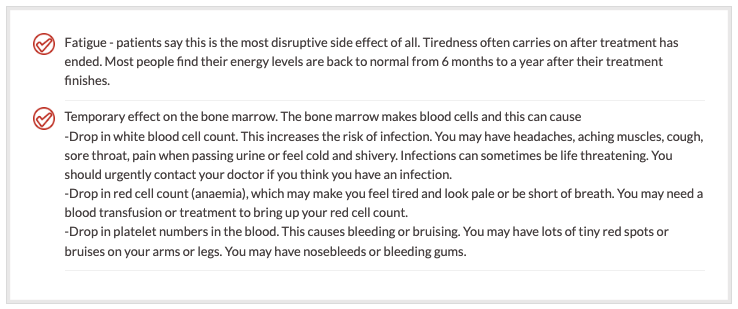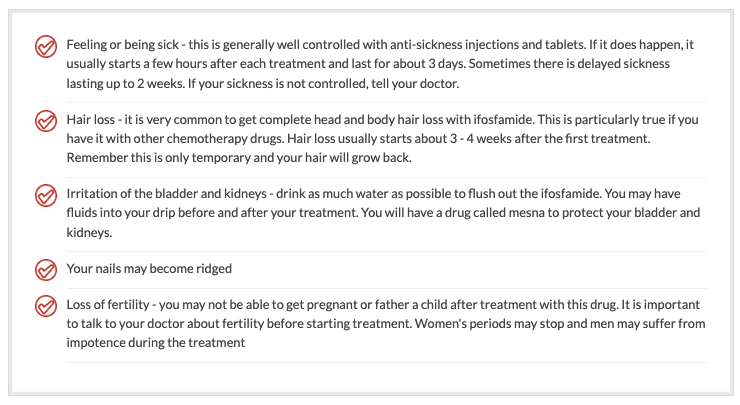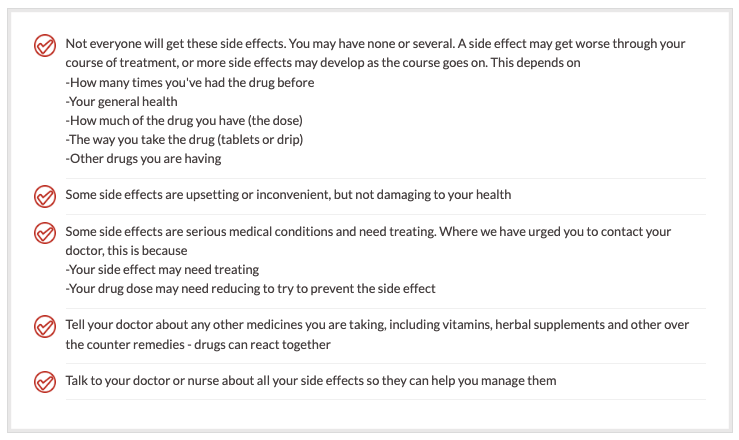
General Information For Ifosfamide
Ifosfamide is used to treat a wide variety of cancers including breast, testicular and lung cancer, as well as some types of lymphoma. It works by sticking the cancer cell's DNA (the cell's genetic code) together so that it can never come apart again. This means that the cell cannot reproduce itself.
Ifosfamide is a clear liquid that you usually have through a drip (infusion) into a fine tube (cannula) put into a vein in your arm. To find out more about the ways of giving chemotherapy click on how chemotherapy is given.
You always have a drug called mesna with ifosfamide. You either have this through your drip in a separate bag, before or after the ifosfamide, or they can be mixed together in one bag. Usually you have a lot of fluid as well, so the drugs will take a long time to go through a drip. You doctor may ask you to stay overnight at the hospital.
You usually have chemotherapy as a course of several cycles of treatment. The treatment plan for ifosfamide depends on which cancer you are being treated for. To find out more about the way chemotherapy treatment is planned click on Planning Chemotherapy.
Common Side Effects of Ifosfamide
Many people have one or more of the following side effects with ifosfamide

Contact your hospital if you have any of these bone marrow side effects. These effects on your bone marrow can begin about 7 days after each treatment and usually return to normal at about 21-28 days. Your doctor will check your blood counts regularly to see how well your bone marrow is working.

Occasional Side Effects
Some people have the following side effects

Remember

People you can talk to about your side effects
Your chemotherapy nurse, clinic or ward nurse will have given you a contact number. You can ring if you have any questions or problems. They can give you advice or reassure you. If in doubt, call.

Our Mission
-
Medical Empowerment
Get the information you need to make informed decisions about your treatment.
-
Legal Empowerment
Get the compensation you need to address the financial cost of your illness.
-
Going For The Gold
Helping empower our clients with over $2.5 Billion in recoveries. We fight for our clients!
-
Giving Back To The Community
Unprecedented Support for Mesothelioma Research. See how we can help!



